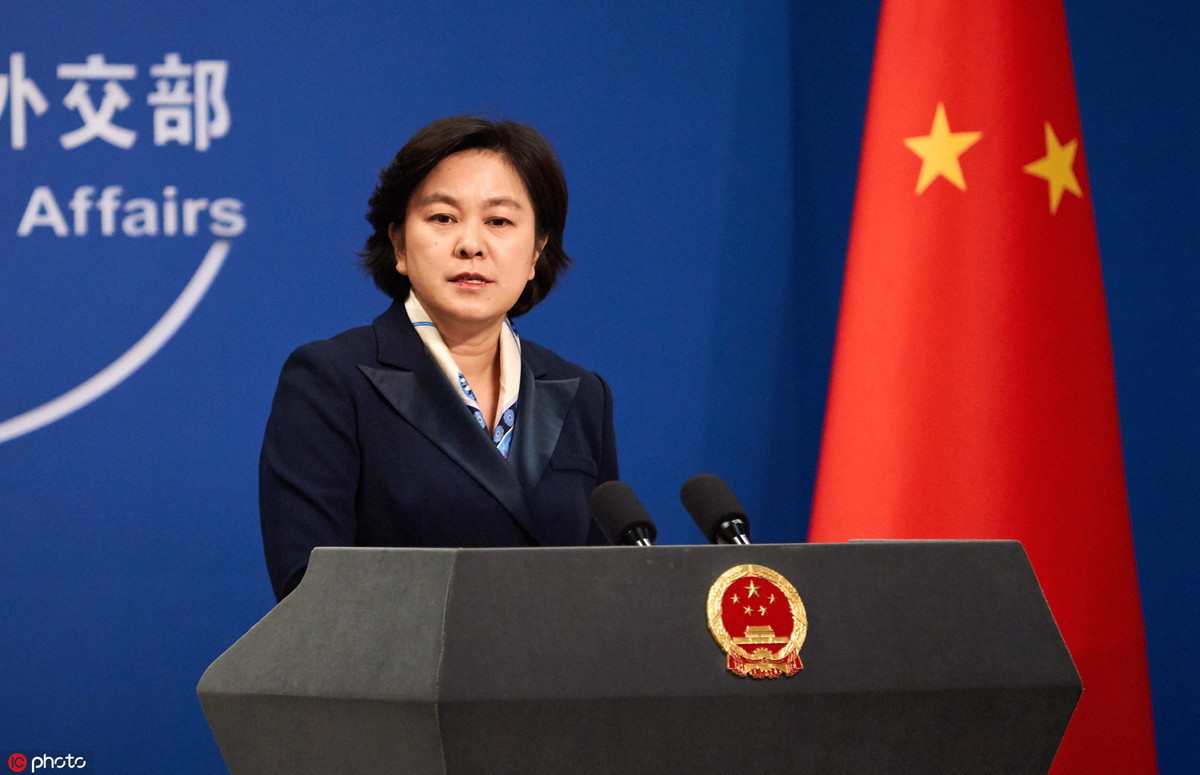
Chinese Foreign Ministry Spokesperson Hua Chunying, file photo. [Photo/IC]
Beijing rebutted United States Vice-President Mike Pence's wide-ranging criticism of China's internal and foreign affairs, and urged certain people in the US to instead recognize their own domestic problems.
Foreign Ministry spokeswoman Hua Chunying expressed opposition to Pence's Thursday speech on Sino-US relations at the Wilson Center in Washington, saying it "reflected his arrogance and hypocrisy and is full of political prejudice and lies".
Pence ignored the domestic problems facing the US. Instead he attempted to shift the public's focus by vilifying other countries so as to cover its own political downsides, Hua said.
"From the large-scale monitoring of 'Prismgate' and shootings to racial issues and the obvious wealth gap… the stained behavior shows that its morality and trust have long gone", she said.
"We urge certain people in the US to look at themselves in the mirror, recognize their own problems and mind their own business well," Hua added.
China resolutely defends its sovereignty, security and development interests, and never allows foreign forces to interfere in its domestic affairs over Taiwan, Hong Kong and the Xinjiang Uygur autonomous region, she said.
"A handful of US politicians headed by Pence have called black 'white' on these issues and made irresponsible remarks to impede China's development and stability," she said.
Any intention to harm national unity, disrupt social stability and slander China will be in vain, she added.
Pence's speech mostly criticized China on issues such as trade, human rights and social systems. But at times it walked a careful line between hard-line statements and accommodative language, saying that Washington sought neither to "decouple" from nor contain the country's development.
One needs to watch what the administration does and not what it says, said Jon R. Taylor, chair of the Department of Political Science and Geography at the University of Texas at San Antonio.
"Pence's claim that there is no intention to 'decouple' rings pretty hollow right now," Taylor said.
Gary Hufbauer, a senior fellow and trade expert at the Peterson Institute for International Economics in Washington, said he believed the US is clearly decoupling, both in terms of trade and investment relations as well as academic exchanges.
Other experts tended to see Pence's remarks in a rosier way.
Cheng Li, director of the Brookings Institution's John L. Thornton China Center, said, "The main message is that the US will continue to engage China on economic, diplomatic and security fronts instead of decoupling with China."


